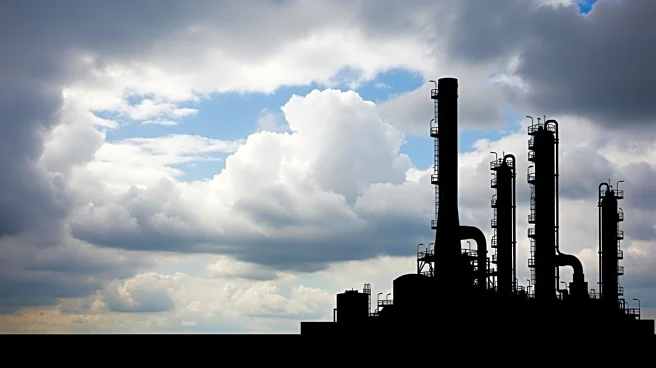What's Happening?
Bulgaria's parliament has passed legislation to take control of the Lukoil refinery located in Burgas, following U.S. sanctions against Russian oil producers Rosneft and Lukoil. The Neftochim plant, owned
by Lukoil since 1999, is the largest oil refinery in the Balkans and Bulgaria's largest company. The U.S. sanctions, effective November 21, are expected to halt the refinery's operations due to payment refusals from counterparties associated with Lukoil. The new law allows for a special administrator to be appointed to manage shareholder voting rights and potentially sell shares to a new owner, subject to government approval.
Why It's Important?
The move by Bulgaria to take control of the Lukoil refinery is a direct response to U.S. sanctions aimed at curbing Russian influence and economic power amid the ongoing conflict in Ukraine. This action highlights the geopolitical tensions affecting energy markets and the strategic maneuvers by countries to secure energy supplies. The sanctions and subsequent Bulgarian legislation could disrupt regional energy markets and impact European Union energy security, as Bulgaria seeks to ensure sufficient petroleum supplies. The situation underscores the broader implications of international sanctions on global trade and energy dependencies.
What's Next?
The Bulgarian government will likely appoint a special administrator to oversee the transition of control at the Lukoil refinery. This administrator will have the authority to manage shareholder decisions and facilitate the sale of shares to new owners, pending government approval. The outcome of these actions could influence Bulgaria's energy policy and its relationship with both Russia and the European Union. Additionally, the effectiveness of U.S. sanctions in altering Russian economic activities will be closely monitored by international stakeholders.









